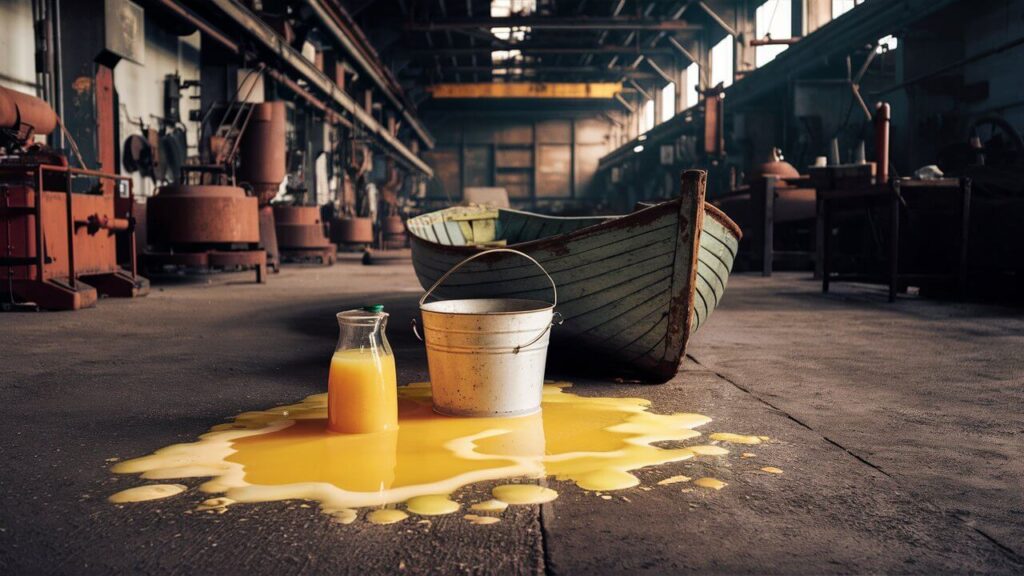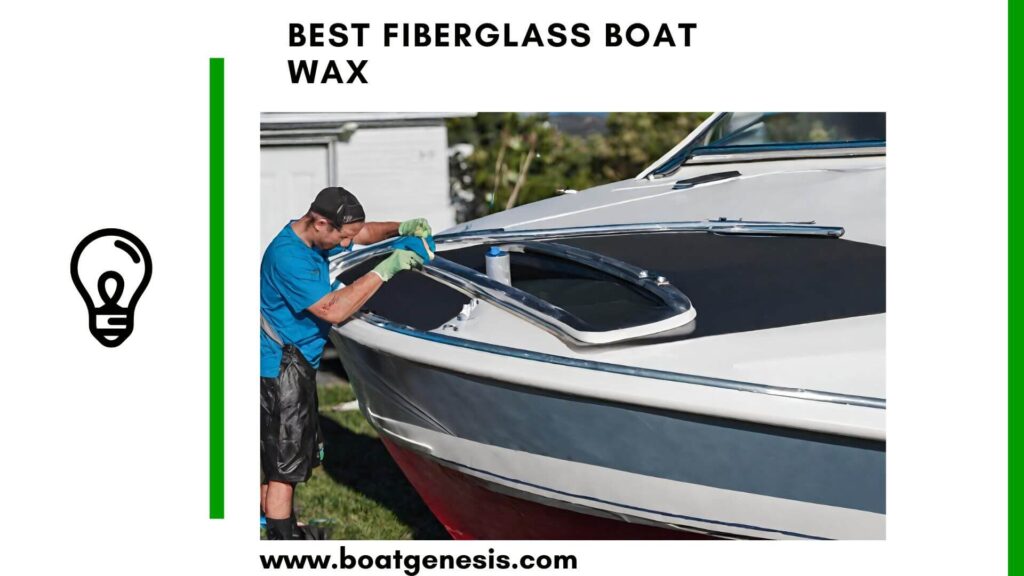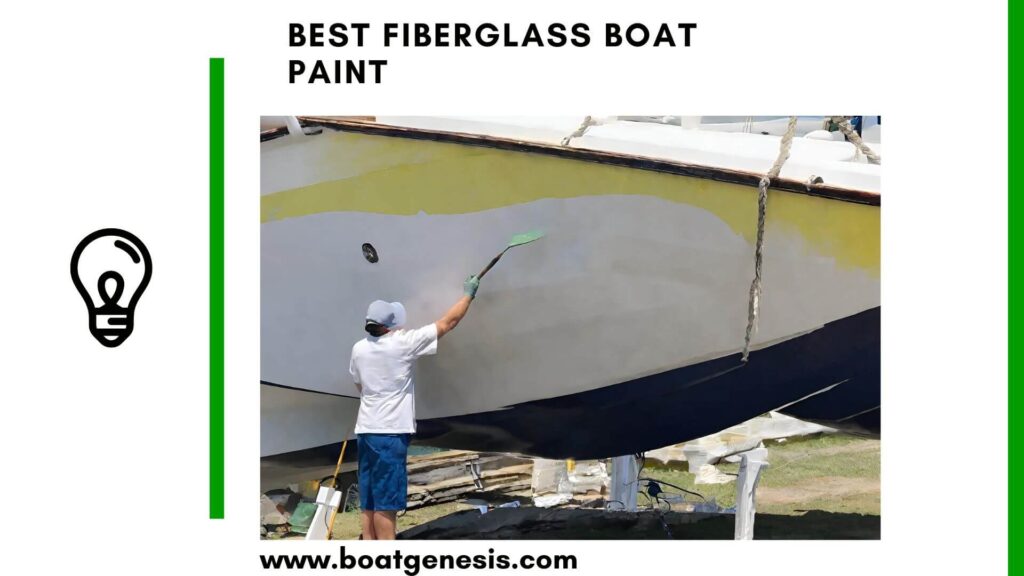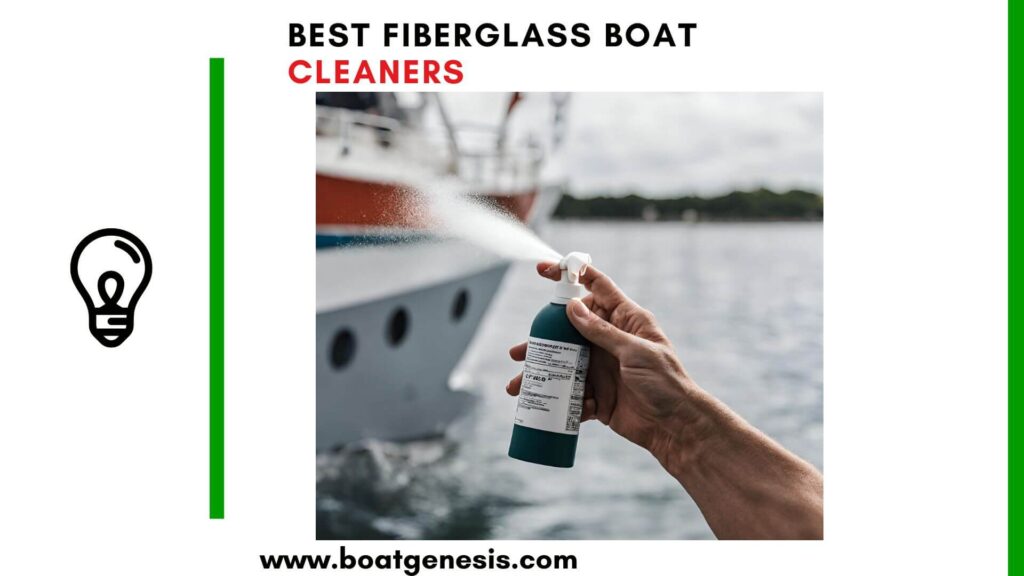Are you tired of spending your hard-earned cash on boat cleaners that promise the world but deliver a drop in the ocean? Well, it’s time to roll up your sleeves because we’re diving into the world of homemade fiberglass boat cleaners that’ll make your vessel shine without sinking your wallet.
Let’s jump right in.
- Why Go Homemade?
- Homemade Fiberglass Boat Cleaner Ideas
- Safety and Disposal
- When to Consider Store-Bought Fiberglass Boat Cleaners
- Wrap Up
- Frequently Asked Questions
- Can homemade cleaners damage my boat's fiberglass?
- What's the best way to apply a homemade cleaner?
- Can I use homemade cleaners on non-fiberglass parts of the boat?
- How do I remove heavy oxidation from my fiberglass boat?
- Are there any homemade cleaners I should avoid?
- Is vinegar safe for fiberglass boats?
- Does vinegar damage gelcoat?
- Can you clean fiberglass with vinegar and baking soda?
Why Go Homemade?
First things first, let’s talk about why homemade cleaners are the catch of the day.
Firstly, they’re cost-effective; you’re using ingredients that are likely already in your kitchen. Secondly, they’re eco-friendly – no harsh chemicals going overboard. And lastly, there’s a certain pride in DIY, isn’t there?
Homemade Fiberglass Boat Cleaner Ideas
This is my recommended top homemade fiberglass boat cleaner ideas.
1. The Classic Vinegar Wash

Let’s start with a classic – the vinegar wash. Mix one cup of white vinegar with a gallon of water (Sailors for the Sea), and you’ve got a solution that’ll tackle dirt and leave your fiberglass sparkling. It’s simple, effective, and won’t harm the environment.
2. The Stain Remover
For those pesky stains that seem as permanent as a lighthouse, a concoction of baking soda and water will create a paste that can be gently rubbed onto the stain.
Let it sit for a few minutes before wiping away to reveal a clean surface.
3. The All-Purpose Powerhouse
Want something a bit more versatile? Mix two cups of white vinegar with water in a five-gallon bucket, and add a squirt of liquid castile soap, and a few drops of your favorite essential oils for a pleasant aroma (Waterborne Magazine).
This mixture is gentle enough for regular washes but tough enough to handle most dirt and grime.
4. The Hull Cleaner Special
A blend of oxalic acid and water can work wonders for the hull.
Oxalic acid, found in many wood bleach products, is excellent for removing waterline stains, rust streaks, and yellowing.
Always use gloves and eye protection when handling oxalic acid, and be sure to dilute it according to the product’s instructions. Apply it to the affected areas, let it sit for a few minutes, then rinse thoroughly with water.
5. The Eco-Friendly Brightener

If you’re looking for a green solution to brighten up your boat, look no further than lemon juice.
The natural acidity helps to remove oxidation and restore the shine to your fiberglass. Mix equal parts of lemon juice and water, apply it to the fiberglass with a soft cloth, and then rinse off.
Not only will your boat look great, but it’ll also smell citrus-fresh!
6. The Final Polish
Once you’ve cleaned your boat to perfection, you might want to give it that extra shine.
For this, you can create a homemade polish by mixing one part white vinegar with two parts linseed oil. Apply with a soft cloth in circular motions, then buff for a glossy finish.
This natural polish will help protect your boat’s surface and keep it looking sharp.
==>> Also read: Homemade fiberglass oxidation remover
Safety and Disposal
Remember, while homemade cleaners are generally safer than commercial ones, it’s important to handle all ingredients with care.
Always wear gloves when cleaning, and ensure proper ventilation. When you’re done, dispose of any leftover solutions responsibly – don’t just pour them into the water or down the drain.
When to Consider Store-Bought Fiberglass Boat Cleaners
Consider store-bought boat cleaners too. They’re convenient and formulated for boats, saving time and tackling tough stains.
There are affordable options out there that won’t capsize your budget. For instance, products like Starbrite and Zing offer specialized formulas that target common issues like hull staining and salt buildup without the need for mixing and measuring.
These commercial cleaners often come with the added benefit of being extensively tested for safety and effectiveness on various types of fiberglass surfaces. They may also contain protective elements that extend the life of your boat’s finish, something that’s harder to achieve with homemade mixes.
Don’t overlook store-bought cleaners. A good mix of DIY and store-bought options ensures you’re ready for any cleaning task.
Wrap Up
So there you have it – a treasure trove of homemade fiberglass boat cleaner recipes that’ll keep your vessel in shipshape without making you walk the plank financially.
By choosing to go DIY with your boat cleaning, you’re not just saving money; you’re also contributing to a healthier planet. So next time your boat needs a little TLC, remember that the best solutions are often the ones you mix up in your own galley.
Frequently Asked Questions
Can homemade cleaners damage my boat’s fiberglass?
Generally speaking, homemade cleaners are safe for use on fiberglass, especially if you stick to gentle ingredients like vinegar, baking soda, and lemon juice. However, always test a small, inconspicuous area first to ensure there’s no adverse reaction.
What’s the best way to apply a homemade cleaner?
A soft sponge or cloth is usually the best choice for applying your homemade cleaner. It’s gentle on the fiberglass and allows you to work the solution into the surface without scratching.
Can I use homemade cleaners on non-fiberglass parts of the boat?
While many homemade cleaners are versatile, some materials may require special care. Always check the manufacturer’s guidelines for cleaning non-fiberglass parts, such as vinyl seats or metal fixtures.
How do I remove heavy oxidation from my fiberglass boat?
For heavy oxidation, you may need a more robust solution. A paste made from baking soda and water can help, but for severe cases, a commercial oxidation remover might be necessary.
Are there any homemade cleaners I should avoid?
Avoid using bleach and ammonia-based cleaners, as they can be harsh on fiberglass and may cause damage over time. Additionally, steer clear of abrasive scrubbers that could scratch the surface.
Is vinegar safe for fiberglass boats?
Yes, vinegar is safe for cleaning fiberglass boats. It’s a mild acid that can effectively remove water spots, mildew, and light staining without harming the fiberglass surface. As with any cleaner, it’s a good idea to rinse the area with water after cleaning.
Does vinegar damage gelcoat?
Vinegar does not typically damage gelcoat if used properly. In fact, it can be quite effective for cleaning and brightening gelcoat surfaces. However, it’s important not to let vinegar sit on the surface for too long and to rinse it off thoroughly after use to prevent any potential dulling of the finish.
Can you clean fiberglass with vinegar and baking soda?
Yes, you can clean fiberglass with a combination of vinegar and baking soda. This duo creates a fizzy reaction that can help lift dirt and grime from the surface. It’s a gentle yet effective way to tackle stains and build-up without scratching the fiberglass. Just create a paste, apply it to the surface, let it sit for a few minutes, then scrub gently with a soft brush or cloth before rinsing clean.




